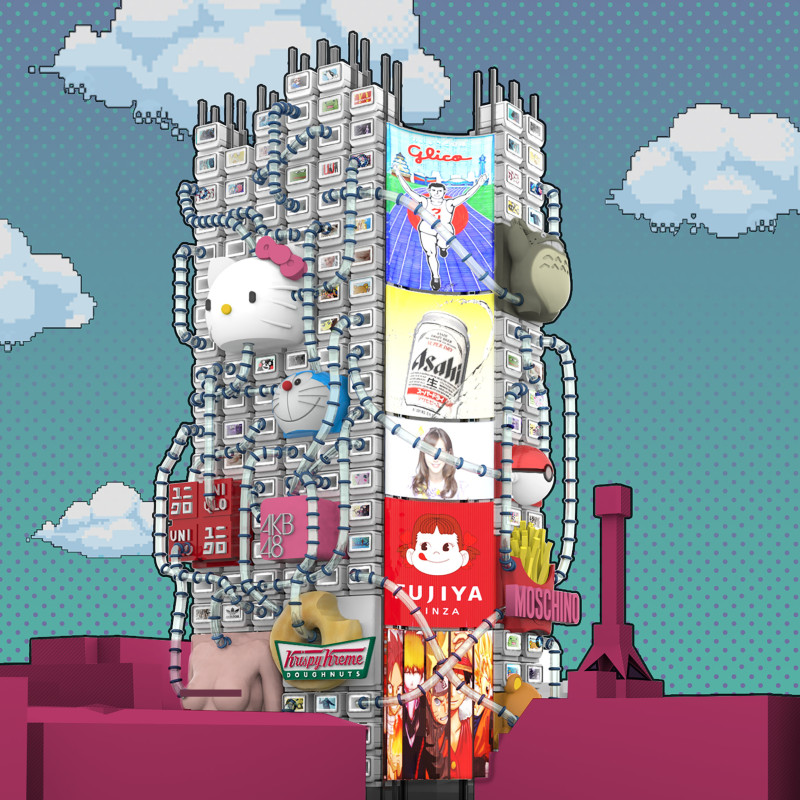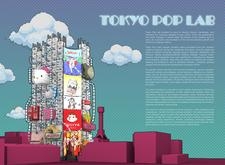5 key facts about this project
### Overview
Located in Tokyo, Japan, the Tokyo Pop Lab is an architectural design that reflects the interplay between contemporary popular culture and urban life. The project is intended to provide an interactive environment that engages visitors and students alike, fostering a cultural ecosystem responsive to the dynamic shifts in societal trends. Drawing from the Metabolist movement, the design emphasizes flexibility and adaptability to accommodate evolving cultural expressions.
### Spatial Adaptability
The building incorporates interchangeable micro pod apartments, which allow for modifications to the structure over time. This modular approach enhances the lifespan of the facility, enabling parts to be upgraded or replaced in response to changing needs. The façade features a vibrant array of modular systems that echo the colorful signage prevalent in neighboring areas, blending aesthetic appeal with function. This evolving visual representation fosters a connection with the transient nature of popular culture while ensuring the building remains a relevant space for engagement.
### Materiality and Technological Integration
The selection of materials is critical to the project's conceptual framework. Reinforced concrete provides structural support, while glass elements promote transparency and interaction with the exterior environment. Polycarbonate panels add to the visual impact of the façade, and metal components ensure structural integrity in a high-density urban setting.
Technological integration is another key aspect, featuring augmented and virtual reality elements that allow visitors to interact with the space in real time. Additionally, the design includes interactive voting systems enabling users to contribute feedback on design modifications—promoting community involvement and fostering a collaborative atmosphere. The Tokyo Pop Lab serves not only as an educational hub but also as a venue for exhibitions and workshops, facilitating dialogue across generations and encouraging creative exchanges within the community.


















































